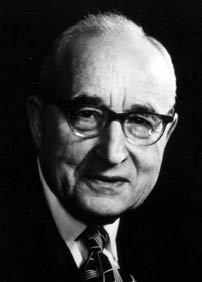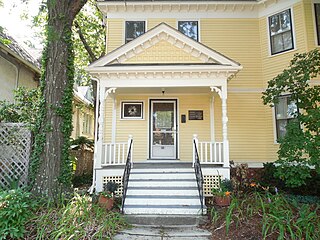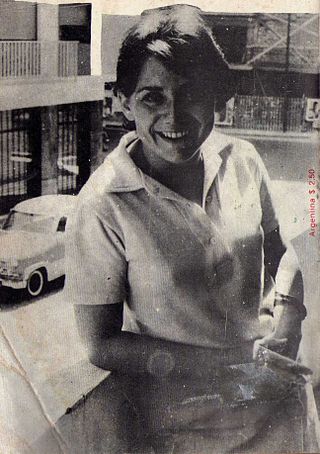Related Research Articles

Mordecai Menahem Kaplan was an American Modern Orthodox rabbi, writer, Jewish educator, professor, theologian, philosopher, activist, and religious leader who founded the Reconstructionist movement of Judaism along with his son-in-law Ira Eisenstein. He has been described as a "towering figure" in the recent history of Judaism for his influential work in adapting it to modern society, contending that Judaism should be a unifying and creative force by stressing the cultural and historical character of the religion as well as theological doctrine.

Spiritualism is a social religious movement popular in the nineteenth and early twentieth centuries, according to which an individual's awareness persists after death and may be contacted by the living. The afterlife, or the "spirit world", is seen by spiritualists not as a static place, but as one in which spirits continue to interact and evolve. These two beliefs—that contact with spirits is possible, and that spirits are more advanced than humans—lead spiritualists to the belief that spirits are capable of advising the living on moral and ethical issues and the nature of God. Some spiritualists follow "spirit guides"—specific spirits relied upon for spiritual direction.

Grace Aguilar was an English novelist, poet and writer on Jewish history and religion. Although she had been writing since childhood, much of her work was published posthumously. Among those are her best known works, the novels Home Influence and A Mother's Recompense.

Geraldine Brooks is an Australian-American journalist and novelist whose 2005 novel March won the Pulitzer Prize for Fiction.

Harriet E. Wilson was an African-American novelist. She was the first African American to publish a novel in North America.

Amy Judith Levy was an English essayist, poet, and novelist best remembered for her literary gifts; her experience as the second Jewish woman at Cambridge University, and as the first Jewish student at Newnham College, Cambridge; her feminist positions; her friendships with others living what came later to be called a "New Woman" life, some of whom were lesbians; and her relationships with both women and men in literary and politically activist circles in London during the 1880s.

Anita Diamant is an American author of fiction and non-fiction books. She has published five novels, the most recent of which is The Boston Girl, a New York Times best seller. She is best known for her 1997 novel The Red Tent, which eventually became a best seller and book club favorite. She has also written six guides to contemporary Jewish practice, including The New Jewish Wedding,Living a Jewish Life, and The New Jewish Baby Book, as well as a collection of personal essays, Pitching My Tent.

Jacob Rader Marcus was a scholar of Jewish history and a Reform rabbi.
Pamela Sydney Frankau was a popular English novelist from a prominent artistic and literary family. She was abandoned by her novelist father Gilbert Frankau at an early age, and she became a prolific writer. She stopped writing for a decade after the death of her lover, the poet Humbert Wolfe, in 1940. After serving in World War II, she was married for several years to an American naval officer, but returned to England and resumed her writing career.
This article provides a selected list of fictional stories in which Spiritualism features as an important plot element. The list omits passing mentions.
Tamar Yellin is an English author and teacher who lives in Yorkshire. Her first novel, The Genizah at the House of Shepher, won the 2007 Sami Rohr Prize for Jewish Literature.

Jonathan D. Sarna is the Joseph H. and Belle R. Braun Professor of American Jewish History in the department of Near Eastern and Judaic Studies and director of the Schusterman Center for Israel Studies at Brandeis University in Waltham, Massachusetts.
Karen Tintori is an Italian-American author of fiction and nonfiction. Her books cover a wide range of human experience, from the mysteries of the Kabbalah to the lives of Italian American immigrants. She writes both as a solo author and in collaboration with New York Times best-selling author Jill Gregory.

Havurat Shalom is a small egalitarian chavurah in Somerville, Massachusetts. Founded in 1968, it is not affiliated with the major Jewish denominations.
Love Brewster was an early American settler, the son of Elder William Brewster and his wife, Mary Brewster. He traveled with his father, mother and brother, Wrestling, on the Mayflower reaching what became the Plymouth Colony in Massachusetts in 1620. Brewster had two sisters, Patience and Fear, and two brothers, Jonathan and Wrestling, along with an unnamed sister who died young. He was a founder of the town of Bridgewater, Plymouth County, Massachusetts.
Fred Skolnik is an American-born writer and editor. Born in New York City, he has lived in Israel since 1963, working mostly as an editor and translator. Best known as the editor in chief of the 22-volume second edition of the Encyclopaedia Judaica winner of the 2007 Dartmouth Medal and hailed by the Library Journal as a "landmark achievement," he is also the author of four novels and over a hundred stories and essays. A selection of 26 of his stories appeared in 2017 under the title Americans & Other Stories.

Alicia Steimberg was an Argentine novelist.

The Banner of Light was an American spiritualist journal published weekly in newspaper format between 1857 and 1907, the longest lasting and most influential of such journals. It was based in Boston, but covered the movement across the US. The paper included a page that gave messages received by its resident medium, and letters from relatives confirming the authenticity of the messages. It also included articles on spiritualism, book reviews, transcripts of lectures delivered by prominent spiritualists, notices of meetings and letters from readers.
Carole Beth Balin is a Reform rabbi and professor of Jewish history at Hebrew Union College-Jewish Institute of Religion in New York City. Her research interests include Eastern European and American Jewish history, the history of Reform Judaism, and gender studies. She received laudatory reviews for her 2003 book To Reveal Our Hearts: Jewish Women Writers in Tsarist Russia, and has co-edited two other books. She is a co-curator of "Bat Mitzvah Comes of Age", a traveling exhibition sponsored by the Smithsonian-affiliated National Museum of American Jewish History and the Moving Traditions Jewish non-profit.

Rebecca Friedländer was a German novelist and short-story writer, composed “romantic novels” under the pen name of Regina Frohberg. She was also a close friend of Rahel Varnhagen, a renowned German writer.
References
- ↑ "Newly uncovered first American Jewish novel reveals an early feminist voice". J. 2019-11-19. Retrieved 2022-04-06.
- 1 2 3 4 5 6 7 "Cora Wilburn". Jewish Women's Archive. Retrieved 2022-04-06.
- 1 2 3 4 5 6 7 Schwartz, Penny. "Newly discovered 19th century American Jewish novel includes rare feminist voice". www.timesofisrael.com. Retrieved 2022-04-06.
- 1 2 3 4 5 6 Sarna, Jonathan D. "The Forgetting Cora Wilburn: Historical Amnesia and the Cambridge History of Jewish American Literature" (PDF).
- ↑ "Cosella Wayne | Jewish Book Council". www.jewishbookcouncil.org. 2019. Retrieved 2022-04-06.
- ↑ https://www.jta.org/2022/10/13/united-states/cora-wilburn-an-early-american-jewish-novelist-gets-a-bridge-named-for-her-in-her-mass-town